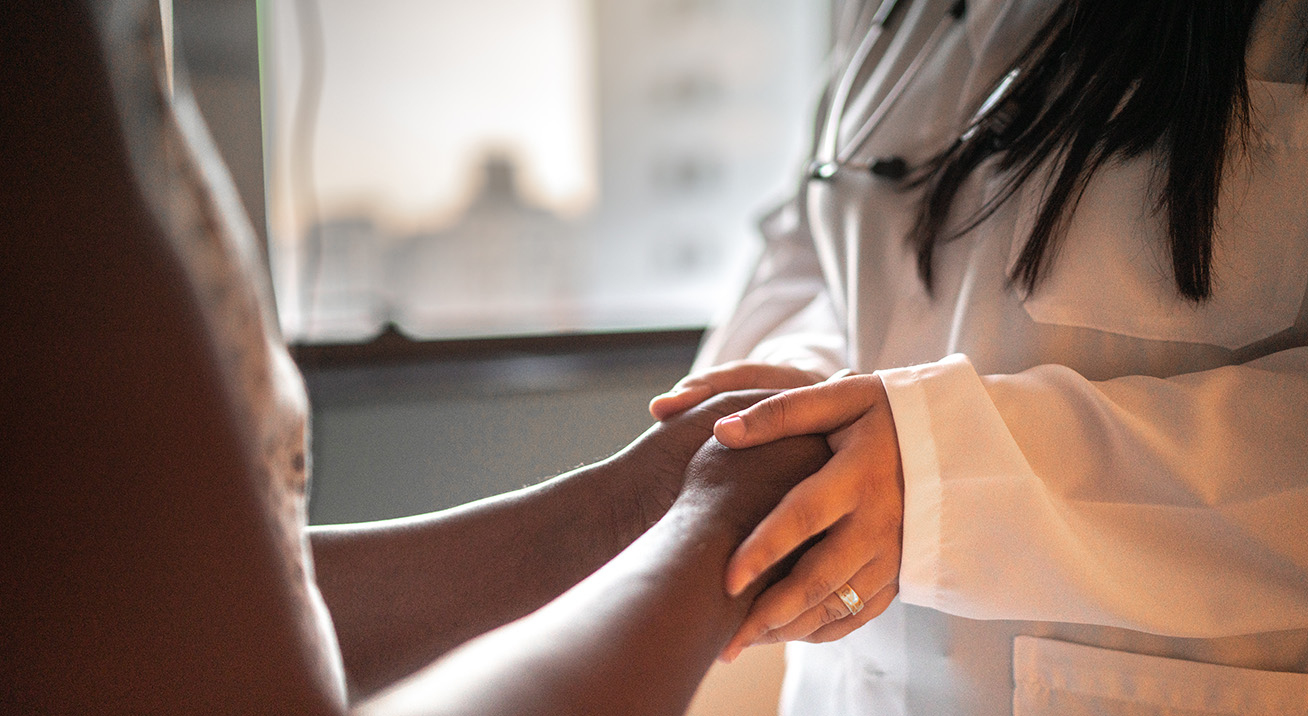
Philanthropy

When my mother had a surgery recently, she ended up being in the hospital for 16 days. Do you know that my aunt stayed at the hospital and slept in a chair? For 16 days with my mom, we never left her alone. It wasn’t because we didn’t trust the nurses and doctors as individuals. We didn’t trust the system.
BIPOC communities, especially birthing people of color, have good reasons not to trust the systems that control our access to healthcare. We know that Black birthing people are three times more likely to die from a pregnancy-related cause than white women, even though 80% of pregnancy-related deaths are preventable. We know, too, that the abortion bans which endanger every pregnant person disproportionately impact birthing people of color. One study projects that a federal abortion ban would increase overall maternal mortality by 24%, but it would increase Black maternal mortality by 39%.
Two years post-Dobbs, with abortion bans in 21 states, it’s more obvious than ever that abortion access is one of the social determinants of health that impacts our right to be healthy. It’s connected to all of the other experiences that marginalized folks in communities historically denied power experience within the healthcare system. This can make the problem feel insurmountable — health equity touches and is touched by everything — but there’s a clear, specific solution for philanthropy: We must center the leadership of communities most impacted by abortion bans and maternal health disparities.
After Roe was overturned, a colleague and I conceived the Just Health Fund to send critical resources to community leaders on the front lines of protecting, providing, and ensuring health equity for marginalized groups. We wanted to address abortion access as the health equity issue that it is, and we wanted to do so within a reproductive justice framework.
The concept of reproductive justice was invented by 12 Black women as an alternative to the reproductive rights framework, which in many ways does not address the varying and expansive needs of BIPOC, LGBTQ, gender expansive, and disabled people. The reproductive justice framework was born out of that need to be inclusive by not just focusing on abortion, but on the full spectrum of the reproductive health experience.
Reproductive justice is the right to have a child, the right to decide not to have a child, the right to raise your children in a healthy and safe environment, and all of the intersections in between. It includes birthing people — women, queer, and trans folks who experience unique health barriers across the spectrum. It includes gender-affirming care and takes into account the nuances of folks’ lives and how they move through the world and experience the world.
Grassroots organizers working in the eye of the storm know how to engage deeper in community, the ways in which people want to be seen, and how to provide care with cultural humility. The role of philanthropy is to resource them.
Listen to an interview with Tareya Palmer of Tides’ Just Health Fund and Beth Huang of Tides’ Healthy Democracy Fund.
Once you adopt a reproductive justice framework, it’s obvious that support for grassroots, community-based organizations is the path forward. One issue is trust — for generations, BIPOC communities have experienced harm at the hands of the healthcare system. There is a long way to go, but philanthropy can and should play a role in addressing these harms.
But a more urgent reason to support grassroots, community-based work is that folks know what they need in their community, and it’s very nuanced, depending on where you are. For example, if you’re somewhere in the South, it’s going to look different. And it gets even more granular — do you live in Georgia? Do you live in Mississippi? How are people in community with each other? How are people passing information? What are folks’ needs?
When I think about the current state of abortion access in the United States, it depends on where you are. In Ohio, we passed Issue 1, which codified abortion into the constitution. People travel from places like West Virginia to Ohio to have an abortion, and then they need transportation, they need childcare, and they need money for the actual procedure.
The needs are going to vary depending on where you are, and only the people living in those communities know what they actually need. Our goal with the Just Health Fund is to honor that and resource folks with the things that they need to lead healthier lives.
Our initial focus for the Just Health Fund is reproductive justice. But over the long term, we hope to expand our support to other health equity issues that impact BIPOC, LGBTQ+ and other communities historically denied power.
We want to address mental health. We want to address LGBTQ+ barriers to access. We want to address racial injustice in the healthcare system.
Our long-term goals are ambitious, and all of them are rooted in an understanding that abortion is healthcare, that communities like mine have never had equal access to healthcare, and that the health equity efforts led by marginalized communities regularly lose out to large national organizations on funding. If we want to make progress, we need to give those groups the support they need.
The fight for abortion access is going to be a long-term struggle that we are grappling with. We can’t experience bodily autonomy without policy, because our bodies have been politicized.
Our work at Just Health is to meet material and direct service needs to minimize harm while we wait for laws to change. And while we wait for this change, people are still in their bodies, and folks have needs in the moment.
We are talking about systems and we’re going up against power structures. It’s not an easy thing to do. But there’s no time to waste, because health equity is a cornerstone of how we get to justice across the spectrum.
The Just Health fund is calling on bold funders to join us in this urgent work and look forward to partnering with you. Email us at justhealthfund[at]tides[dot]org.

Read the stories and hear the voices of social change leaders fighting for justice.